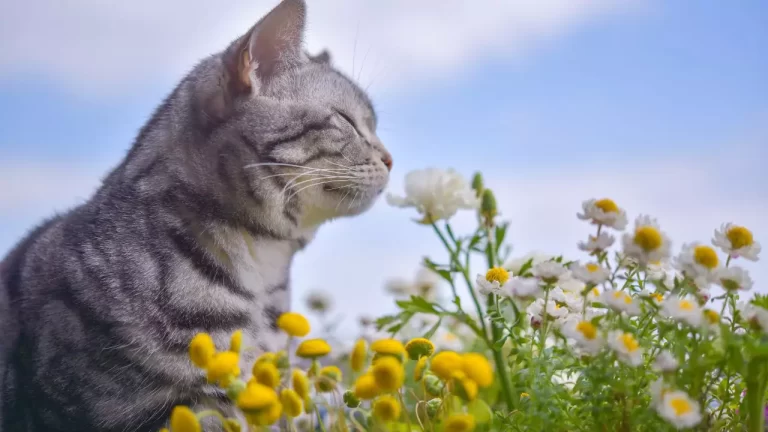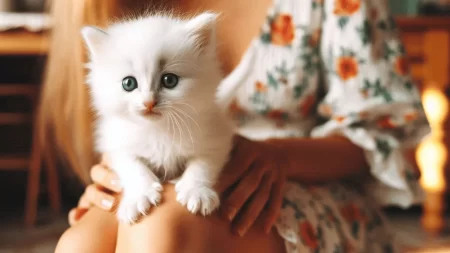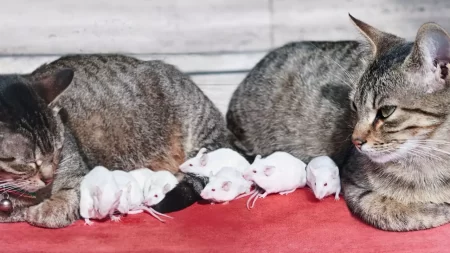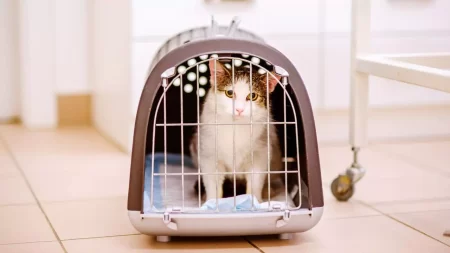Cats are curious and playful creatures, but they also have a very sensitive nose. Their sense of smell is 14 times better than ours, and they use it to explore their environment, communicate with other cats, and find food.
Scent enrichment is an important way to keep your cat happy and stimulated, as it allows them to experience different smells that can trigger their natural instincts and behaviors. But what smells do cats like, and what smells do they hate?
In this article, we will answer these questions and explain why smell matters for cats.
Smells Cats Love
There are some smells that cats find irresistible, and they will often react to them by rubbing, licking, rolling, or playing. These smells can come from plants, food, or even their owner’s scent. Here are some of the most common smells that cats love:
- Catnip: This is probably the most famous smell that attracts cats. Catnip is a plant that contains a chemical called nepetalactone, which stimulates the cat’s brain and causes a euphoric reaction. About two thirds of cats are genetically sensitive to catnip, while the rest are unaffected. Catnip can make your cat more active, playful, and relaxed.
- Valerian Root: This is another plant that has a similar effect to catnip on some cats. Valerian root contains a compound called actinidine, which activates the same receptors in the cat’s brain as nepetalactone. Valerian root can also make your cat more energetic and happy.
- Vanilla: This is a sweet and pleasant smell that cats enjoy. Vanilla can have a calming effect on cats, as it reminds them of their mother’s milk. Vanilla can also reduce stress and anxiety in cats, especially when they are in a new or unfamiliar environment.
- Yeast: This is a smell that cats associate with food, especially bread or cheese. Yeast contains amino acids that are essential for the cat’s health and nutrition. Yeast can also stimulate the cat’s appetite and make them more interested in eating.
- Silver Vine: This is another plant that can induce a catnip-like response in cats. Silver vine is native to Asia, and it contains two chemicals that can affect the cat’s brain: actinidine and dihydroactinidiolide. Silver vine can attract about 80% of cats, including some that are not responsive to catnip.
- Olives: This is a surprising smell that some cats love. Olives contain oleuropein, a substance that can also trigger the cat’s brain receptors. Olives can make your cat behave like they are in heat, rubbing, licking, and vocalizing.
- Animal protein: This is a natural smell that cats crave, as they are obligate carnivores. Animal protein provides the cat with essential nutrients and energy. Animal protein can come from meat, fish, eggs, or dairy products.
- Their owner’s scent: This is a familiar and comforting smell that cats love. Their owner’s scent represents safety, security, and affection for the cat. Their owner’s scent can come from their clothes, bedding, or skin.
Smells Cats Dislike
There are also some smells that cats hate, and they will often avoid them or show signs of displeasure. These smells can come from plants, fruits, or chemicals. Here are some of the most common smells that cats dislike:
- Mint, basil, and peppermint: These are plants that belong to the same family as catnip, but they have the opposite effect on cats. Mint, basil, and peppermint contain menthol, a substance that irritates the cat’s nose and mouth. Mint, basil, and peppermint can also be toxic to cats if ingested in large amounts.
- Rosemary: This is another plant that repels cats. Rosemary has a strong and pungent smell that cats find unpleasant. Rosemary can also cause digestive problems in cats if eaten.
- Citrus scents: These are smells that come from fruits like oranges, lemons, limes, or grapefruits. Citrus scents are acidic and bitter to the cat’s nose. Citrus scents can also be harmful to cats if ingested or applied to their skin.
- Synthetic fragrances: These are smells that come from products like perfume, air fresheners, detergents, or candles. Synthetic fragrances are artificial and unnatural to the cat’s nose. Synthetic fragrances can also contain chemicals that are toxic or allergenic to cats.
- Some floral aromas: These are smells that come from flowers like lilies, tulips, hyacinths, or daffodils. Some floral aromas are too strong and overpowering for the cat’s nose. Some floral aromas can also be poisonous to cats if ingested or touched.
Why Smell Matters for Cats?
As we have seen, cats have a very powerful and sophisticated sense of smell. They use it to explore their environment, communicate with other cats, and find food. The smell is also linked to their emotions, as different smells can affect their mood and behavior. Therefore, smell enrichment is an important way to keep your cat happy and stimulated, as it allows them to experience different smells that can trigger their natural instincts and behaviors. Smell enrichment can be done by providing your cat with toys, treats, or plants that have smells they love, or by avoiding or removing smells they hate. Smell enrichment can also be done by letting your cat have access to fresh air and natural scents, or by creating a scent trail for them to follow. Smell enrichment can benefit your cat’s physical and mental health, as it can reduce stress, boredom, aggression, and obesity. Smell enrichment can also strengthen your bond with your cat, as they will appreciate your efforts to make them happy and comfortable.







